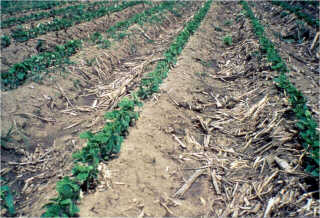There will be many roadblocks if we are new to a field, be it anything. It is because of our inexperience in the field. Gradually through experience, we will learn how to solve these problems and do it right. Starting an agribusiness journey with a farm can be daunting, but with the right tips for farming, beginners can navigate the challenges more smoothly.
Think about this, collecting some tomatoes from your home garden, fresh tomatoes which are free from chemicals, isn’t the investment of a little effort a small price to pay for a healthier future?

For every field, if you are going after proper study and planning, you can reduce the overwhelming feeling while facing the problems associated with the field. I am going to share some tips which are useful for an amateur farmer.
Essential Tips for Farming Success: 10 Beginners’ Tips
Farming may feel overwhelming for an amateur farmer at the beginning, but with some preparations, you can overcome it. Below are some of the tips useful for it:
1. Choosing the Right Plants
Each and every area has different climate and soil conditions. So, it is important to choose your crop according to the soil and climate conditions of your area.
For checking the climate condition and soil health, we, AgriApp will help you through our soil testing services and our tech-enabled climate predictions.
2. Make Ridges Around Your Crop Instead of Keeping It Flat
Ridging is the gathering of soil from the sides, channelling it towards the centre, so as to create a pile of raised soil with a trapezoidal contour. While planting a crop, make ridges around it as it will help in:

a. Improving soil health
b. Helps in reducing soil erosion
c. Cleaning of weeds will be easier for farmers & Reduce herbicide cost
3. Planting Cover Crops
Cover crops are plants that are planted to cover the soil rather than for the purpose of being harvested. Planting cover crops before the planting season or before planting the main crops as a form of crop rotation is better for the soil.
Cover crops help in:
a. Preventing soil erosion
b. Improves soil health
c. Regulating soil moisture
d. Attract pollinators
e. Weed and pest management
f. Cover crops will act as mulch
g. It can act as a source of green manure and organic matter
Commonly grown cover crops include legumes (cowpea, berseem, mustard) and non-legumes (rye, wheat, oat, barley, sorghum, pearl millet, maize, fodder). In rainfed areas, rice is followed by cover crops of green gram, black gram, lentil, horse gram, lathyrus, pea and groundnut.
4. Make Use of Agricultural Technologies
Nowadays farmers are facing unprecedented challenges and traditional farming techniques will not suffice to face these challenges. To overcome these challenges and to improve the yields, a new-age farmer should make use of the new-age agricultural technologies. They can use both traditional techniques and new-age technologies side by side. Agricultural technology is revolutionizing the farming scenario nowadays with its use of technologies like IoT, drones, analytics, satellite-enabled weather forecasting, online soil testing etc.

One such AgriTech company is AgriApp, which provides its members with several new age technology-enabled services:
- Online soil testing
- Expert advisory services
With the help of its seasoned agronomists, AgriApp provides farmers with real-time advice and it is available through chats, images and videos. - Drone technology
Useful for crop management and if you have a large piece of land for farming, it will be useful for spraying pesticides. - Crop Analytics
With the help of satellite data, AgriApp provides detailed insights from sowing to harvesting and helps farmers make informed decisions. - Crop calendar and custom suggestions
AgriApp helps farmers to navigate through the agriculture cycle with its personalized crop calendar and custom suggestions.
5. Keep Track of Latest Farming Trends
Being updated is the new norm in every field. Agriculture is no different. As a farmer, you should be aware of the latest trends and news in the field, whether it is any new technology or government schemes or policies.
To help our members get to know about the latest trends and news in the field, AgriApp through its blog and push notifications provides the farmers with the latest news and trends.
Get Free Crop Advisory and Free Daily Tips Through our App for all your farming-related problems
6. Create A Yield Plan for A Year or Season
As a first step, an amateur farmer should have a yield goal which he intends to get and to achieve that goal, the beginner should prepare a yield plan. The plan will elaborate on processes like soil testing, crop selection, land preparation, machine procuring, pesticides etc.
1. Objective Setting and Preliminary Assessment
Begin with a clear articulation of your yield targets. Consider factors such as historical yield data, soil potential, and climatic conditions to set realistic goals. This initial phase lays the groundwork for a tailored approach to achieving your farming aspirations.
2. Land Preparation: Laying the Foundation for a Prosperous Harvest
Effective land preparation involves a series of actions aimed at creating the ideal seedbed for your chosen crops. This includes ploughing, harrowing, and levelling to ensure optimal soil conditions for seed germination and root development. As we mentioned before, don’t forget to test the soil. Discuss with farmers from your locality.
3. Integrated Pest Management (IPM): Safeguarding Your Crops
Develop an IPM plan that combines biological, cultural, physical, and chemical tools to manage pests and diseases effectively. This approach minimizes the reliance on chemicals, promoting a healthier ecosystem and reducing potential harm to non-target organisms.

By breaking down the yield planning process into manageable steps, any amateur farmer can be equipped with a roadmap towards achieving their yield goals. AgriAppp offers a free crop advisory service for this, our Crop Advisors are graduates in Agriculture and their advice will be beneficial for you.
7. Check Your Equipment Daily
It is very important to check your farming equipment to make sure it is working properly. If not, it will affect your daily operations and will cause a loss of money and valuable time. If proper inspection is there, you can find replacements or can get a timely repair for the equipment.
8. Focus On A Few Crops and A Primary Market
First and foremost, analyse the agricultural market and try to find out which crops are making a stable gain and at what season it is making the gain. Then pick the crops from among them that you like and focus on growing those particular crops. This will help you to concentrate your attention in a particular direction rather than wandering to different directions.
9. Be Flexible
Don’t be afraid to change your plan if it isn’t working. Sit down to look at what you did and see what didn’t work and then make a plan that addresses the problem. If you need to switch markets, crops, products, or distribution plans then make the change. Just make sure you think it through carefully.
Out of all these tips, our last tip considering low-investment farming is actually a growing problem in India. This is the foremost reason for the air pollution in our capital city
10. While Clearing Your Farm, Do Not Burn Bush
The act of burning bushes on the farm not only affects the soil but also the climate. It exposes the land to the effect of wind, water erosion and ultraviolet radiation. As an alternative, gather the bushes and use them as mulch to protect the soil or as manure to provide nutrients to the soil.
Anyway, these are only tips which aid you in the process of farming. Like every activity in life, farming also is filled with uncertainties. You will only learn it by doing it. These tips for farming are crucial stepping stones for anyone looking to start a farm and enjoy a fulfilling agricultural journey.